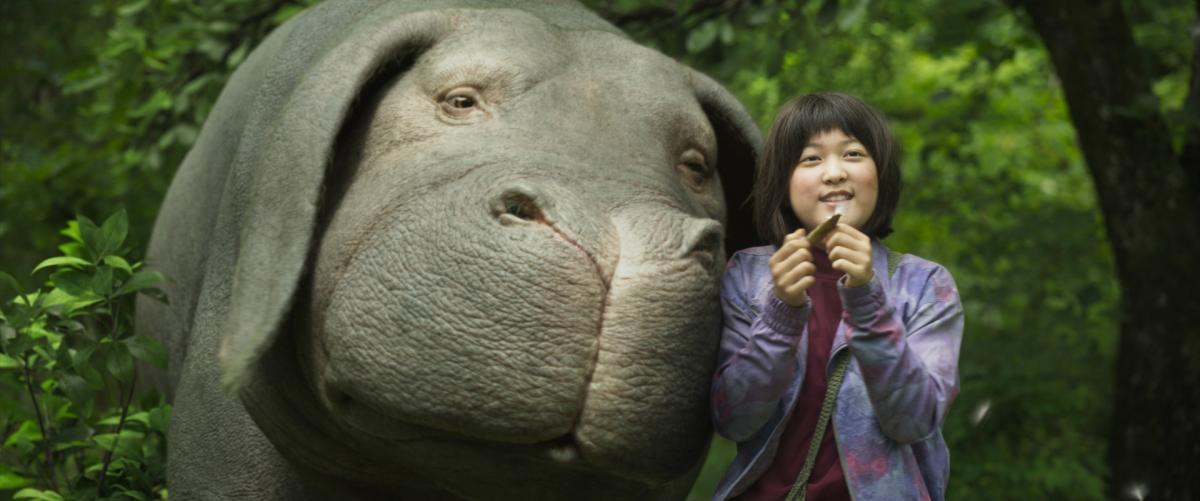Okja Review 
While Bong Joon-ho’s Okja is set in a fictional reality, the film’s power lies in the way that it holds up a mirror to our world. We are introduced to Okja, a genetically modified ‘superpig’ created to produce a huge amount of meat at a low cost. She is intelligent, compassionate and idiosyncratic – and a metaphor for each animal killed every day for commercial gain.
The film tracks the determined endeavours of Mija (An Seo Hyn) to bring Okja back home to rural Korea where the pair grew up together and developed a profound bond. Okja belongs to Mirando, the corporation which seeks to rebrand itself as the agricultural saviour of the planet following the development of the superpig. But what Mirando doesn’t account for is Mija’s determination to save her best friend, aided by the involvement of Jay (Paul Dano) and the Animal Liberation Front.
The vegans don’t get a perfect portrayal, though; the ALF frequently resort to minor forms of violence, despite Jay’s insistence on the credo “We never harm anyone, human or non-human”. One member takes this to the extreme, refusing even to eat a tomato, as “All food production is exploitative”. Although this is an exaggeration of vegan beliefs, it points out that our best intentions can often go astray. The tensions within the ALF also reflect that of the animal activism movement at large: if vegans are squabbling amongst ourselves, we are losing sight of what is most important.
Okja will make you laugh, and it’ll make you cry. While it is compelling viewing, some distressing scenes make it unsuitable for viewers under 15; and as a Netflix Original, it’s only watchable from this platform. Still, the CGI slaughterhouse footage is no fiction, and like Okja, the animals ending up on the nation’s plate have the capacity to love, to be loved, and the desire to be free.

